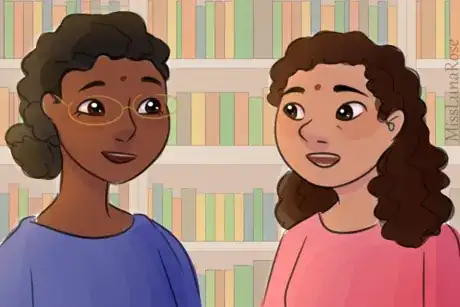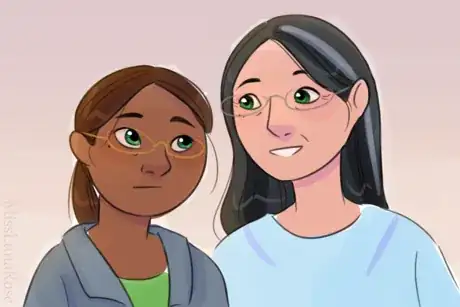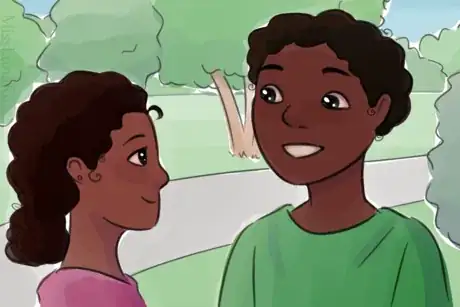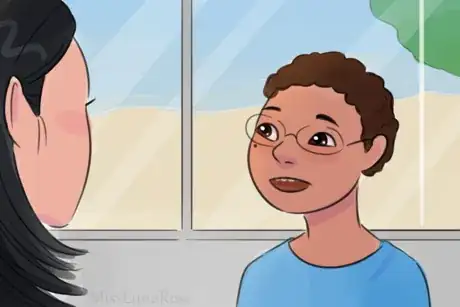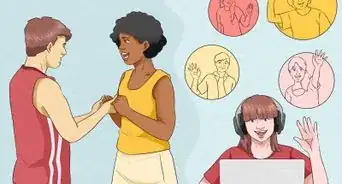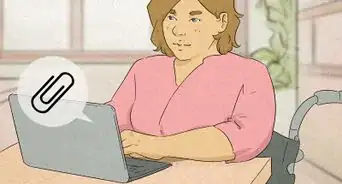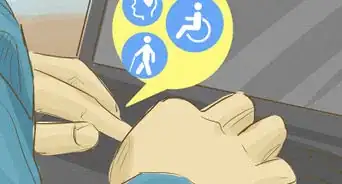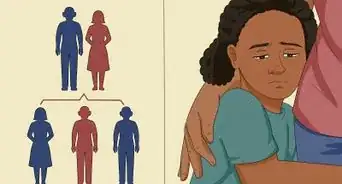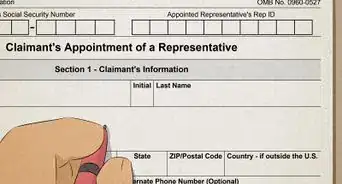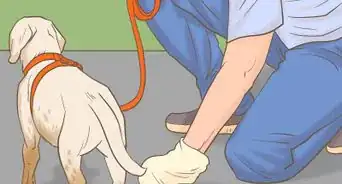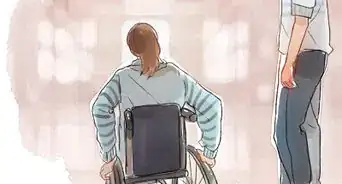This article was co-authored by Meredith Brinster, PhD. Meredith Brinster serves as a Pediatric Developmental Psychologist in the Dell Children’s Developmental and Behavioral Pediatrics Program and as a Clinical Assistant Professor in the Department of Psychiatry and Behavioral Sciences at Dell Medical School of The University of Texas at Austin. With over five years of experience, Dr. Brinster specializes in evaluating children and adolescents with developmental, behavioral, and academic concerns, including autism spectrum disorder, developmental delay, intellectual disability, anxiety, attention problems, and learning disabilities. Her current research focuses on early biomarkers of autism spectrum disorder, as well as improving access to care. Dr. Brinster received her BA in Psychological and Brain Sciences from Johns Hopkins University and her doctorate in Educational Psychology from the University of Texas at Austin. She completed her clinical internship in pediatric and child psychology at the University of Miami Medical School and Mailman Center for Child Development. She is a member of the Society for Research in Child Development (SRCD) and the American Psychological Association (APA).
There are 7 references cited in this article, which can be found at the bottom of the page.
This article has been viewed 52,704 times.
Your family may have given you advice like saying "please" and "thank you," raising your hand before talking in class, and saying "excuse me" before leaving the dinner table. But that advice rarely extends to how to be courteous when you're with a person with a disability. Here is how to be respectful of them and help them (and you) feel at ease.
Steps
-
1Understand that disabled people are no less human than non-disabled people. They have wants, needs, and people who love them just like others do. They may have a different way of living, and may learn things differently, but they are skilled, wonderful people.
-
2Treat them as your equals. Many people talk down to people with disabilities, as they would to a child. However, plenty of disabled can pick up on this and will be hurt, annoyed, or angered by it. Patience is key. If a person with a disability doesn't understand you, try to accommodate them instead of giving up.[1]
- Be mindful of your communication. Use simple language and be a little more clear and direct.[2]
- Talk to them in an age-appropriate way. For example, don't use baby talk with a teenager.
- Some people do need you to speak more clearly or use shorter words.
- Rephrase what you said, pronounce things carefully, and/or say it a bit slower as needed.
- Avoid using complex or technical terms if they have issues with understanding them. So instead of Expand that stub please try Write more things about the title, if you can, please.
Advertisement -
3Stay calm if they have a hard time. Don't panic if they fall down, experience sensory overload, or get injured.[3] Kindly ask "How can I help you?" and let them tell you what they need (if anything).
- During sensory overload, a person may not be able to speak or advocate for themselves. See if they can write, sign, or type. If not, take them somewhere quiet and relaxing, and encourage others to leave them alone.
- During a seizure, remove tight clothing and obstacles that could hurt them. Cushion their head. Don't try to hold them still or put things in their mouth.
- During a meltdown, help them find a quiet place away from other people to calm down. Don't blame them, scold them, or try to grab them. Instead, make a calm and quiet environment to help reduce stress.
Tip: If they don't want help, don't push it. Maybe they want to handle things themselves or your idea of helping is actually getting in the way. Be respectful by listening to what they say they want.
-
4Smile, and be friendly. It makes you seem nice and approachable. Plus, it can boost your mood![4]
- You can greet them appropriately but do not expect the same response.
- You may have to get their attention or make eye contact before greeting them.
-
5Chat with them. They like to talk and share their feelings, just like us. Ask them about their day, school/work, travels they have taken, friends, hobbies, anything! People love to talk about themselves and their interests.
-
6Don't overthink it! Again, people with disabilities are not so different from anyone else, so simply treat them like an average person.
-
7Be supportive of them. If they seem very proud of something, tell them when they've done a good job! If will make them proud to know that they have done something to be happy about.
-
8Speak respectfully. Being considerate is important, and respectful language makes it clear that you care about them and don't view them as lesser than yourself.[5]
- Talk directly to them, not to whoever is accompanying them.
- Instead of "what's wrong with you," try saying "may I ask about your disability?" Nobody wants to feel like there's something wrong with them. And they don't have to talk about their condition if they don't want to.
- Especially avoid using the word r*tard(ed), which is known as the "R" word. It's considered an insult, and many people within the special needs and disabled community find this word deeply hurtful and offensive.
-
9Involve them. Include them in the conversation, throw the ball to them during a game and notice if they are confused or putting themselves in danger, at which time you should discreetly offer a hand.
- If they are in a wheelchair, sit down on some steps or swings and indicate to the group to follow your example to keep everyone at the same eye level.
- If they're blind, try not to rely on humorous facial expressions or mimes. If you're talking about something that looks funny or interesting, provide a quick description so that no one is left out.. Instead of pointing say Wow, there goes a really cool car. I think it's a Ferrari. and instead of just laughing along as your friend does a daft impression, say something like Honestly Darragh, you look more like Father Christmas when you pull that face than some sort of pop star!
- Explain jokes or sarcasm if it looks like someone doesn't get it.
-
10Don't assume what they can or can't do. Each disabled person is unique, and two people with the same disability may have very different needs and capabilities. Get to know them as an individual. Use this knowledge to be aware of any potentially dangerous or awkward situations or to know if you can do anything to help, such as gently pointing out an unexpected step.
- For example, just because someone does lots of stimming or can't speak doesn't mean they aren't smart or can't understand you.
-
11Don't be afraid to ask. If you aren't sure about their needs or how to accommodate them, just ask. They are the experts on their own needs, and can tell you how to be helpful and respectful.[6]
- "You seem a bit distracted and uncomfortable. Should we sit somewhere less busy?"
- "You usually turn down my help when I offer to help out with jars and doorknobs. Do you want me to keep offering, or should I wait until you ask?"
- "This building is kind of a maze. Do you need help finding your professor's office?"
- "If you ever have a shutdown when I'm around, what should I do to help you?"
-
12Understand that they'll have good and bad days. Their needs and abilities may vary day to day. Some days they may be able to do something easily, and the next they may find it difficult. A good friend is supportive during the easy times and the hard times.
References
- ↑ https://www.huffpost.com/entry/disability-etiquette_n_3600181
- ↑ https://www.dhs.state.il.us/page.aspx?item=32276
- ↑ https://www.autism.org.uk/advice-and-guidance/topics/sensory-differences/sensory-differences/all-audiences
- ↑ https://www.psychologytoday.com/us/blog/cutting-edge-leadership/201206/there-s-magic-in-your-smile
- ↑ https://www.respectability.org/inclusive-philanthropy/how-to-include-people-with-disabilities/
- ↑ https://www.girlshealth.gov/disability/know/treat.html
- http://www.nln.org/professional-development-programs/teaching-resources/ace-d/additional-resources/communicating-with-people-with-disabilities



